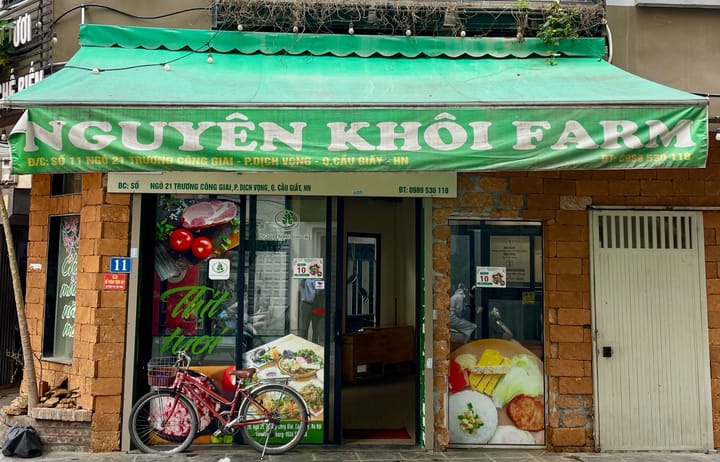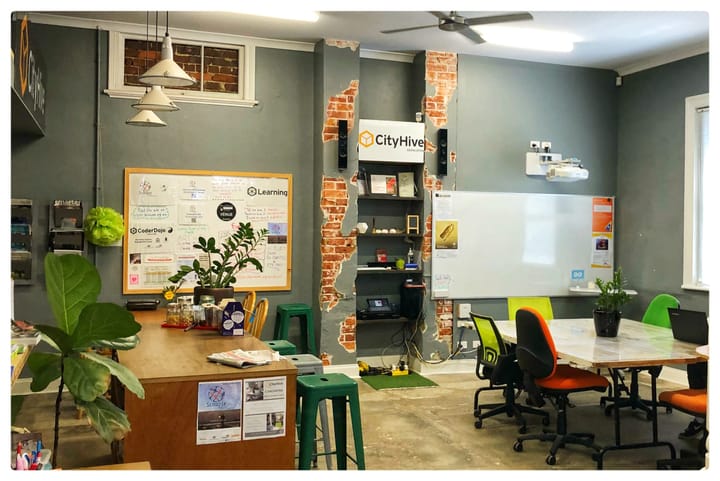Two centres for social innovation
Creating physical and virtual centres for the promotion of social innovation appears to be an emerging trend. Here are two examples.
In Toronto, Canada, the Centre for Social Innovation (CSI) is a Toronto-based social enterprise with a mission to catalyze social innovation. CSI’s shared workspace model offers office amenities to initiatives that are typically under-resourced, increasing social capital and connecting members with a powerful network of local change makers. CSI is also home to hundreds of meetings, capacity-building workshops, information sessions, and community events every year, typically hosting over 10,000 people annually.
Here’s how CSI define social innovation:
Definitions of social innovation abound and a casual observer can quickly become entangled in a debate over meaning and nuance. We’re not too hung up about it so we’ve adopted a simple working definition: Social Innovation refers to new ideas that resolve existing social, cultural, economic and environmental challenges for the benefit of people and planet. A true social innovation is systems-changing – it permanently alters the perceptions, behaviours and structures that previously gave rise to these challenges.
Even more simply, a social innovation is an idea that works for the public good.
Social innovations come from individuals, groups or organizations, and can take place in the for-profit, nonprofit and public sectors. Increasingly, they are happening in the spaces between these three sectors as perspectives collide to spark new ways of thinking.
CSI creates the conditions for social innovation. It approach is based on a belief in cross-sectoral collaborations, community entrepreneurship and civil society as the seeds of change. CSI believes there is incredible untapped energy in communities that’s just waiting to be harnessed. CSI explores new methods of engaging people in the development of innovations designed to serve people and the planet.
CSI describes three ways of promoting innovation:
Ideas: Ideas are the lifeblood of innovation. Sometimes they emerge from a deliberate and rigorous process. Sometimes they are a response to an emerging or pressing need. And sometimes they just seem to appear out of thin air. At CSI, we’re always encountering, exploring and generating new ideas that hold promise for addressing the challenges facing our communities.
Models: Half the fun is creating new models – the other half is sharing them! Over the past few years, we’ve both invented new models that we’ve applied here at CSI as well as identifying models that we think have real promise. We’re now working to help other organizations and communities borrow and adapt what we’ve done.
Projects: We’ve incubated a handful of projects since the day we opened our doors. These projects all have a few things in common: they are emerging, involve incredible social entrepreneurs, and are positioned to make a real difference in the communities they serve. And they each address one or more of our key priorities: market transformation, entrepreneurship, collaboration and systems change.
In Adelaide, South Australia, the Australian Centre for Social Innovation (TACSI) identifies and supports innovative ideas, methods and people that will contribute to and accelerate positive social change. TASCI is a “social innovation laboratory which creates, tests and incubates ideas, methods and projects for addressing unmet social needs and helping more people lead thriving lives”.
A key part of TACSI’s mission is to bring together all sectors of society to find ways for it to be more resourceful, adaptive and resilient in tackling the big economic, social, environmental and cultural challenges of this century. This involves brokering relationships across the public and private sectors to ensure that the impact of social change can reach across traditional boundaries between policy makers, social services, business and the community. To achieve this mission, TACSI works with stakeholders including federal, state and local governments, businesses and non-government agencies.
One of the TASCI’s projects is the Social Innovator Dialogues, which brings international thought leadership and expertise to Australia through a series of events. This includes cutting edge thinkers and practitioners on innovation in public sector policy, social justice and sustainable design, the series addresses the big issues affecting decision makers across the public, private and third sector and encourage changemakers in Australia to wrestle with the opportunities and challenges of innovation that are remaking the world as we know it.
In 2010, TASCI launched the Bold Ideas Better Lives Challenge, which asked Australia “what do you think the big problems are facing our society and how do you think we can solve them?” The Challenge sought to find and fund innovative, impactful and implementable solutions that address Australia’s most pressing social needs. One million Australian Dollars were shared between eight winning projects (drawn from 258 initial entries):
Aged Care Digital Lifestyles Engaging older people with technology to improve their quality of life in aged care facilities.
AroundYou Connecting people with their local neighbourhood and building community through events, activities and services online and in mobile devices.
Employment Pathways for Deaf Students Creating access to employment for the hearing impaired through development of workplace tools, technology and training.
Hello Sunday Morning Addressing Australia’s binge drinking culture and encouraging individuals to take responsibility and change their drinking behaviour.
Renew Australia Placing creative, social and cultural initiatives in empty or disused buildings to re-engage people with underutilised urban areas.
Sharing Universal Stories of Depression Raising awareness of depression among culturally and linguistically diverse communities.
Tjungu: Learning Country Building community capacity and social entrepreneurship with indigenous communities across the Anangu Pitjantjatjara Yankunyjatjara lands in central Australia.
Who Gives A Crap? Turning consumers into philanthropists – a social enterprise selling environmentally sustainable toilet paper that will donate its profits to support environmental conservation and reforestation in Australia and water sanitation in the developing world.




